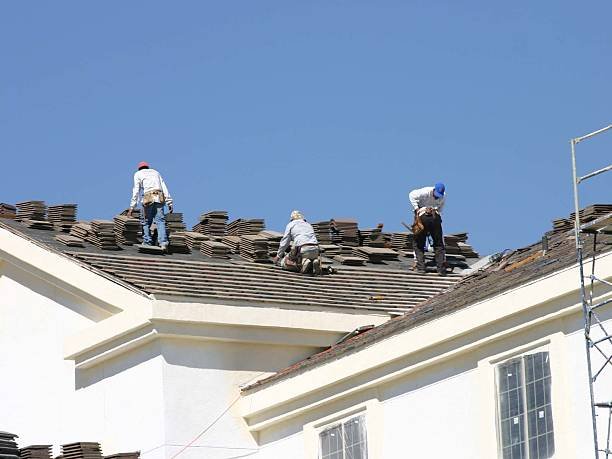A choice to update your roof may have a substantial impact on your home’s value, energy efficiency, and aesthetic appeal. The financial investment is substantial, though, and the final price tag may be affected by a wide range of variables. Without this knowledge, it might be difficult to determine how much money to set aside for a roof renovation.
In this article, we’ll discuss some of the factors that might affect how much money you set aside for a roof replacement. Our goal is to provide you with all the information you need to make a smart financial choice regarding your roof replacement or repair, from the cost of materials to the cost of labor to any hidden fees that may be included.
Assessing Your Current Roof’s Condition
Assessing the current roof’s condition is the first stage in establishing a budget for the renovation. It may be more cost-effective to make modest repairs or additions rather than a whole overhaul if your roof is still quite fresh and in excellent condition.
However, if your roof is old or has been severely damaged, a replacement may be required. There may be a need for a complete roof replacement rather than just a few repairs if there is extensive shingle damage, water leakage, or evidence of structural damage.
Choosing the Right Materials
The budget for your improvement will be affected greatly by the components you decide to use. Asphalt shingles are inexpensive and simple to install, but other options include metal, slate, and high-end architectural shingles, all of which may be rather pricey.
Metal roofing, for instance, might be a good choice if you value longevity and a contemporary look. Metal roofs may last more than twice as long as asphalt shingles, so although the initial investment is more, you may end up saving money in the long term.
Also Read: The True Cost of Window Replacement: What You Need to Know
Labor Costs
The cost of labor is also significant when replacing a roof. It all depends on the size of your roof, the degree of difficulty of the work, and the going rate for workers in your area. To be sure you’re receiving a good deal, it’s important to compare estimates from many reliable contractors.
There might be an increase in labor expenses if, for instance, your property has a high roof pitch or numerous stories. Always remember to account for these costs while making financial plans.
Potential Hidden Costs
Consider all of the expenditures, not just the obvious ones, when making your upgrading budget. Roof decking repairs, gutter system improvements, and new soffit and fascia installations are all examples.
Your contractor may find rot or water damage after work gets underway, resulting in the need for extra repairs. Budget an extra 10–20% on top of the estimated price to cover any unforeseen costs that may arise.
Energy Efficiency Considerations
While energy efficiency isn’t technically a cost, including it in your upgrading plan might end up saving you money. Some roofing materials and colors are better at reflecting sunlight than others, which may help reduce cooling expenses.
For instance, if you choose light-colored shingles or put money into a cool roof coating, you may see a reduction in your energy expenditures throughout the summer.
Related: Repair or Replace Your Garage Door?
Long-Term Value
Finally, think about the upgrade’s long-term usefulness. If you intend on selling your house in the near future, you should consider investing in a new roof. A high-quality, long-lasting roof will also help you save money on upkeep and repairs.
For instance, a slate roof has a larger initial investment cost than an asphalt shingle roof, but it lasts far longer and looks great for decades, increasing your home’s resale value and curb appeal.
Conclusion
The state of your present roof, the materials you want to use, the cost of labor, any additional expenditures that may arise, and the long-term worth of the upgrade are just a few of the variables that must be taken into account when estimating how much money you will need to invest in the project. While costly, a new roof may do wonders for your home’s curb appeal, energy efficiency, and resale value.
If you take the time to research and plan your renovation, you may improve your home’s comfort, utility, and curb appeal without breaking the bank. Keep in mind that everyone’s house is different and that some solutions may not work for others. Therefore, it is highly recommended that you consult with Mighty Dog Roofing in Chesapeake for expert guidance that is targeted to your individual requirements and circumstances.







